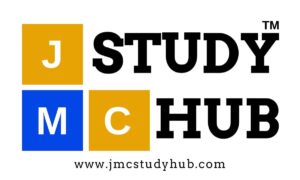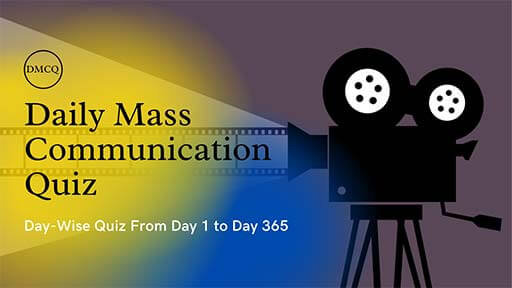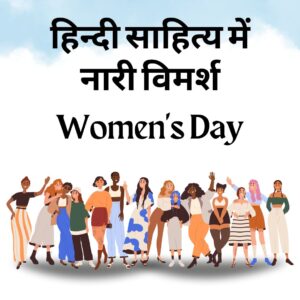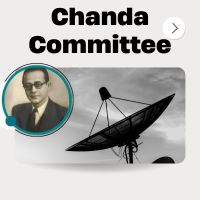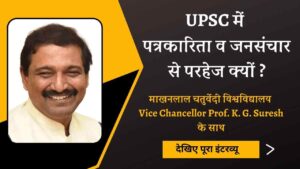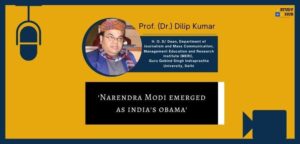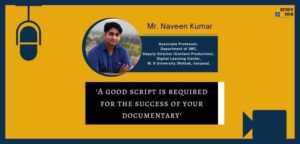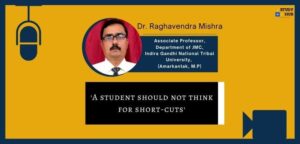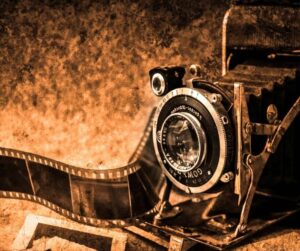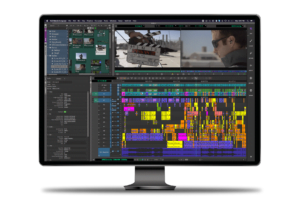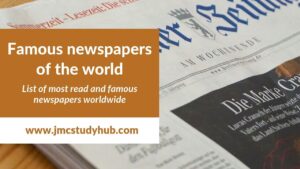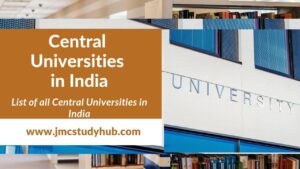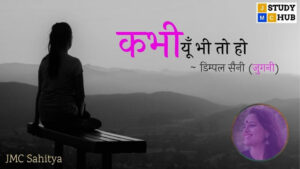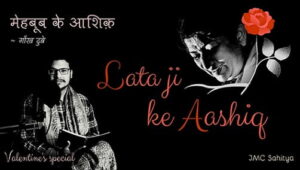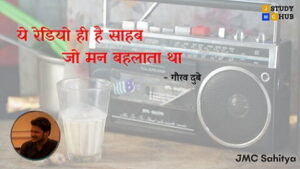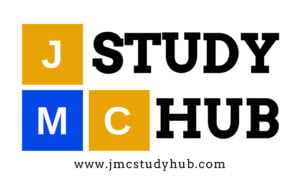ily Mass Communication Quiz (DMCQ) boost your concepts through day wise solved quiz from the entire course of Journalism and Mass communication (JMC) with detail explanations.
Journalism and Mass Communication Objective Questions (DMCQ)
Q 1. The process of controlling the flow of information is
(A) Media event
(B) Media strategy
(C) Frequenting
(D) Gatekeeping
Correct Answer: (D) Gatekeeping
Explanation: Gatekeeping involves a human or technological process used to control information flow. An initial conceptualization of gatekeeping was journalism‐based and focused on the process of selecting what becomes news, with reporters and editors playing the role of human filters.
Q 2. The first ever language newspaper in India was started in
(A) Bombay Presidency
(B) Madras Presidency
(C) Gujarat
(D) Bengal
Correct Answer: (D) Bengal
Explanation: Hicky’s Bengal Gazette was the first English-language newspaper published on the Indian subcontinent. It was founded in Calcutta, capital of British India at the time, by Irishman James Augustus Hicky in 1779. The front page news stories are written in British English.
Q 3. In which newspaper did Gandhi write: “I have taken up journalism not for its sake, but merelyas an aid to what I have conceived to be my mission in life”.
(A) The Madras Standard
(B) Young India
(C) Bangalee
(D) Bombay Chronicle
Correct Answer: (B) Young India
Explanation: In Young India of July 2, 1925, he wrote: “I have taken up journalism not for its sake but merely as an aid to what I have conceived to be my mission in life. … Gandhi looked upon journalism as a means to serve the people. He said in his autobiography: “The sole aim of journalism should be service.
Q 4. In which year was the United Press Association founded?
(A) 1903
(B) 1907
(C) 1908
(D) 1909
Correct Answer: (B) 1907
Explanation: United Press International (UPI), American-based news agency, one of the largest proprietary wire services in the world. It was created in 1958 upon the merger of the United Press (UP; 1907) with the International News Service (INS).
Q 5. In which year International News Service (INS) merged with United Press Associations?
(A) 1950
(B) 1954
(C) 1956
(D) 1958
Correct Answer: (D) 1958
Explanation: United Press International (UPI), American-based news agency, one of the largest proprietary wire services in the world. It was created in 1958 upon the merger of the United Press (UP; 1907) with the International News Service (INS).
Q 6. Ethical concepts change with
(A) Situation
(B) Time
(C) Place
(D) All of the above
Correct Answer: (D) All of the above
Explanation: Some of the most basic ethical concepts include honesty, integrity, justice, equality, and respect. Ethical concepts change with situation, place and time.
Q 7. The ‘watchdog’ of democracy’ is
(A) The press
(B) Music CDs
(C) Cinema
(D) Newspapers
Correct Answer: (A) The press
Explanation: The role of the press to be a “watchdog” and monitor a government’s actions has been one of the fundamental components of a democratic society.
Q 8. Usually people’s interaction with media is
(A) Unquestioning
(B) Homogeneous
(C) Inactive
(D) All of the above
Correct Answer: (D) All of the above
Explanation: Audience are not able to ask questions or interact with media. Audience are heterogeneous means people are not identical, all are different from each other. Newspaper, TV, Radio, Cinema are examples of mass communication which is one way communication and the people’s interaction with these media is inactive.
Q 9. Who called our society as a ‘dramatized’ society?
(A) James Augustus Hicky
(B) Marshall McLuhan
(C) Johannes Gutenberg
(D) Raymond Williams
Correct Answer: (D) Raymond Williams
Explanation: In the simplest sense our society has been dramatized by the inclusion of constant dramatic representation as a daily habit and need. But the real process is more active than that. Drama is a special kind of use of quite general processes of presentation, representation, signification.
Q 10. The phrase the people’s right to know was coined by
(A) Harold Cross
(B) Kent Cooper
(C) ElieAbel
(D) William Rivers
Correct Answer: (B) Kent Cooper
Explanation: As for the phrase “the right to know,” it was apparently coined in the 1940s by Kent Cooper, who was the executive director of the Associated Press. The New York Times credited him with originating the phrase in an editorial on January 23, 1945.
